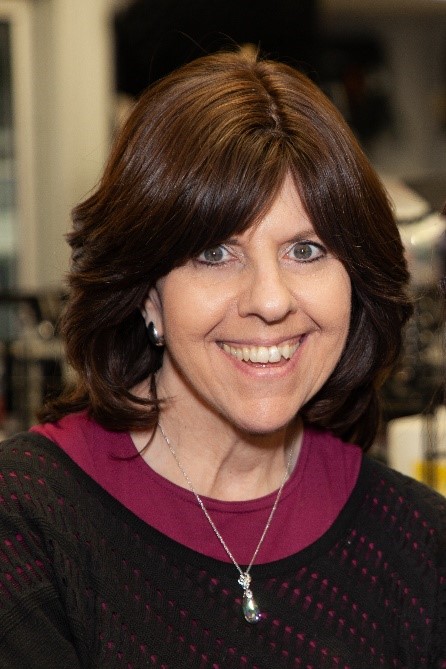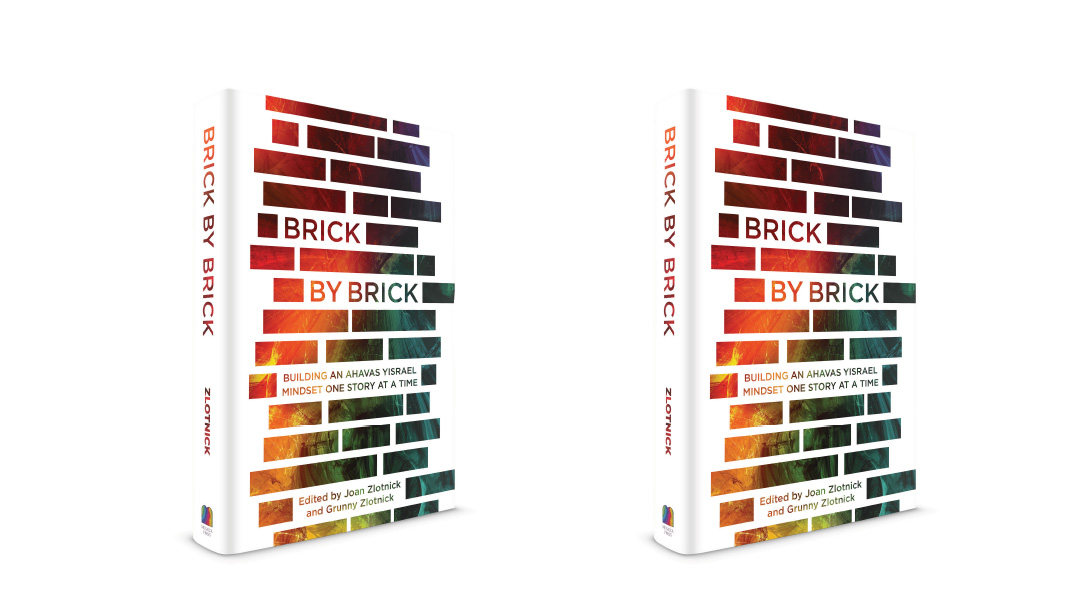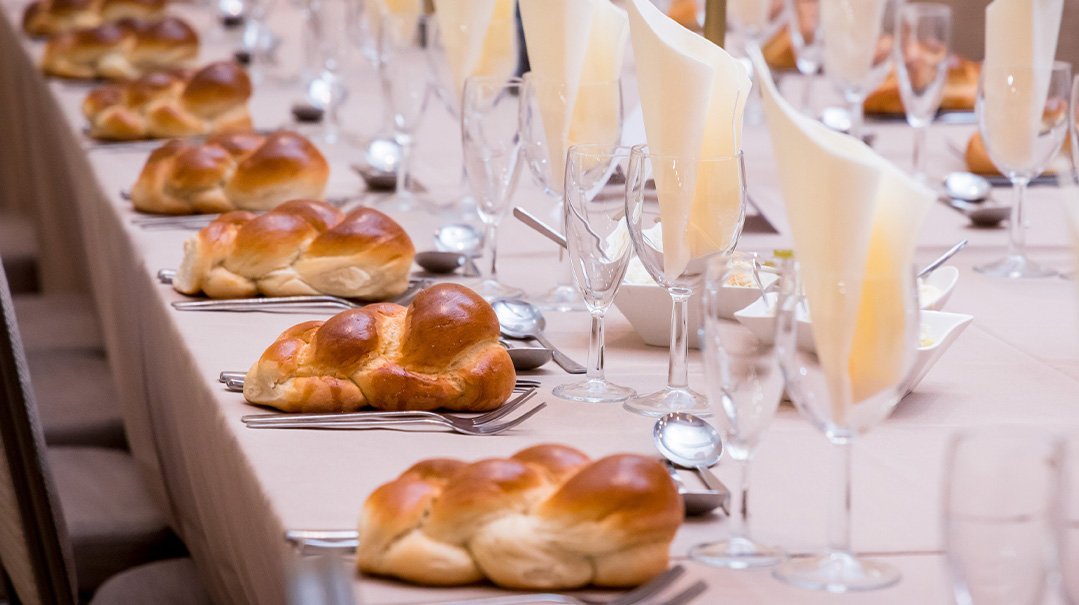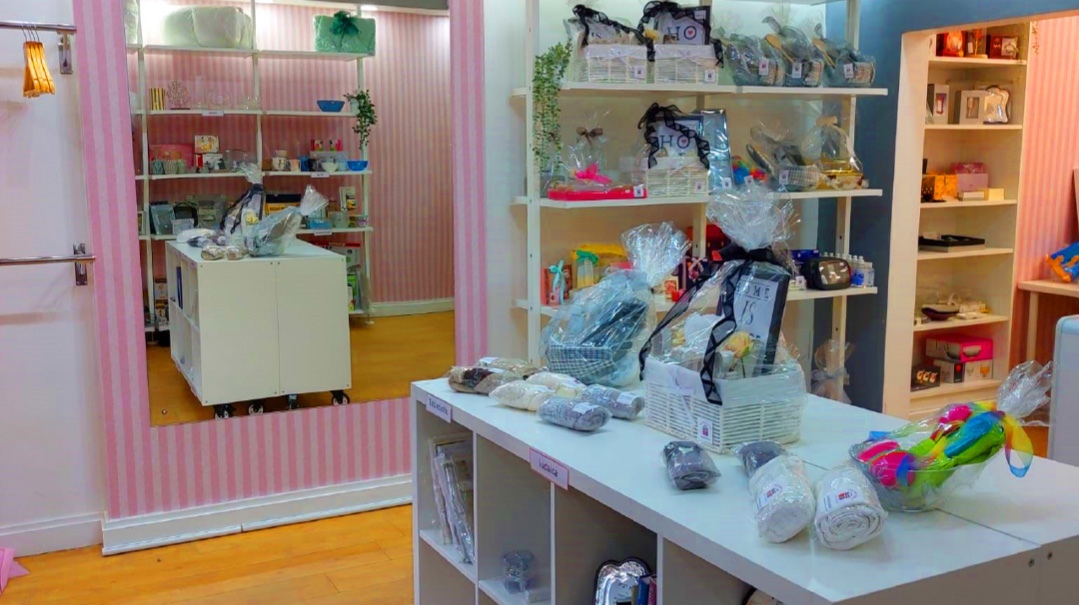On Your Mark… Meet Miriam Handler

Miriam Handler raises money for tzedakah by directing highly acclaimed shows for women

Being on stage was my ultimate childhood dream. I was that kid in camp who would have skipped any activity to be in the camp play. I cried when I didn’t get a good part, which was almost always.
Today, I don’t have that same need to be on stage. As a director, my passion is helping others perform to the best of their abilities, beyond even their own expectations. (And I do get to act at rehearsals, where I play every part in the show.)
Directing is in my blood. My mother, Dr. Susan Katz a”h, and grandmother, Mrs. Sylvia (Sima) Goodside a”h, were legendary, beloved principals who also directed school plays. I had no experience directing when I started, but I impulsively jumped in, counting on Hashem to help me.
Jewish “Broadway”
I grew up in Belle Harbor. After I got married, I moved to Brooklyn, where I knew no one. Ever the optimist and big dreamer, I had an epiphany: Why not try to put on a high-level, all-volunteer women’s show to raise money for tzedakah, simultaneously providing a creative and social outlet?
After calling 100 disinterested people — on a landline! — I was shocked when ten people showed up for a meeting in my home. These were talented women with community connections — clear siyata d’Shmaya. They were older than I was, some significantly older, and I think that amused them. That was how N’shei Tzedakah Players (NTP) was born in 1982.
My sister, Chani Schick, has been my partner throughout. A brilliant pianist and incomparable musical director, she been accompanying school shows using professional music scores since she was 14.
We knew practically nothing when we started. We didn’t even put seat numbers on tickets. Who knew so many people would come? They stormed through the doors; it was comical. NTP performed “Broadway-style” shows for a decade.
What we NTP “alumnae” cherished most was not the spotlight, but the camaraderie. We made lifelong friends as we banged handmade flyers onto trees and spent all-nighters painting when scenery didn’t arrive, laughing and cheering each other on through countless rehearsals. It wasn’t about individual stardom. It was about throwing our hearts into building something to make Hashem proud, and raising huge sums for tzedakah.
Bonds born of creativity and chesed (and late nights!) last forever. Many of these women would never have crossed paths. Yet, they connected — irrespective of age, background, and life experience — in a genuine way, pre-cell phones and social media.
NTP disbanded in 1993. Baruch Hashem I’ve been play director in Camp Bnos since 2000, and written/directed many musical comedy skits, videos, and songs for private parties and organizations. I also coach acting. Still, I dreamed of restarting NTP. So when Rachel’s Place contacted me in 2011 to direct their first production, I was thrilled!
Unquestionably, RPP shows are on an entirely unprecedented level: incredible talent onstage, magnificent costumes, sophisticated sets, breathtaking musical numbers, live orchestra (no prerecording!). The women involved are volunteers.
After ten years of sold-out shows, Covid brought things to a halt. Meanwhile, I did online productions: The “Go for It” talent show and “One Voice Theatrical Fest.” Still, there’s nothing like a live show. Baruch Hashem, we returned this year with a reimagined classic musical “Encore,” performing for nearly 11,000 women in four sold-out shows at the Ritz theater. Behind the Scenes
Rehearsals start in my den and my sister’s living room. Everyone’s welcome to raid my fridge or pantry (and they do!). I want them to feel at home and have fun. Eventually, we move to larger locations to combine elements.
When watching an RPP show, you can momentarily forget that the women are playing roles because they become their parts. The goal is to look effortless. But it takes hard work to attain that authenticity. Every line, move, harmony, and dance step is planned, perfected, and replicated identically in each performance.
I’m a bit of a slavedriver, making actresses repeat and repeat lines… but when they get it, they feel it! Every part, big or small, is key to a show’s success, and requires a serious investment of time. When we’re finally on stage, mere days before our debut, watching the process evolve from chaotic to cohesive is intense but exhilarating.
Picture 200 people working backstage (think marketing, tech, costumes, props) plus over 70 women onstage. The seven children in “Encore,” for example, had so many quick costume changes that each had her own personal dresser! All night there are women on standby to touch up makeup or hair or sew a ripped costume. You never know what can happen.
We’ve had crazy, albeit hilarious experiences. Like the dress rehearsal when the theater manager insisted we leave by twelve thirty a.m. We desperately needed more time on stage. When we nicely requested (begged), he threatened to lock us in — and he did! Eighty women climbed down a treacherous, icy fire escape at two a.m.
Unquestionably, the hardest thing for me is casting. Disappointing people hoping for parts, often choosing between talented women vying for the same role, is extremely difficult.
Spreading Simchah
In my role, I continually meet amazing women who are true role models in middos and chesed — whether it’s positivity in the face of life challenges, or quietly helping wherever needed without seeking credit. I’ve learned to be patient, stay calm, and be attuned to each individual. Everyone has personal struggles and insecurities and needs validation. Sincere praise like, “I noticed your great facial expression,” or even just a smile can make someone’s day.
Al pi teva, it’s impossible for shows of this scope to succeed. Consider the sheer number of people and parts that must come together. But when you do something lishmah, for the right reasons — to bring Hashem nachas, working b’achdus to raise tzedakah, giving people a platform to use the talents Hashem gave them — you receive siyata d’Shmaya.
Each year, I say, “Hashem, I can’t do this! I’m relying on You to make it happen!” And He does. Sincerely attributing success to Hashem brings brachah. Parenthetically, RPP shows never utilize social media, and daas Torah has guided us throughout.
I’m not into doing depressing plays. There’s enough sadness in people’s lives. There isn’t a kid today who doesn’t know someone who has experienced serious challenges, tragedy, or some sort of trauma. If women come to a show, let them laugh and leave smiling.
Before each show, we say a perek Tehillim together backstage. This year, we chose perek 100 — mizmor l’sodah. Our goal is “Ivdu es Hashem b’simchah” — to spread simchah. It is a zechus for which I am eternally grateful.
Funniest questions asked:
“Are you the piano?” (No… and technically neither is my sister.)
“You’re the director? Do you know _____?” (Fill in any leading role.)
“When are you going to grow up and stop putting on plays?” (B’ezras Hashem, I hope never.)
Books I Love:
Out of the Depths by Rabbi Lau, the V’Higadeta series by Rabbi Galinsky, and Make Your Berachos Meaningful, by my husband, Rabbi Mechel Handler
My Favorite Shows:
Encore, Katalina, Shtetl, and That’s My Nanny
(Originally featured in Family First, Issue 840)
Oops! We could not locate your form.







